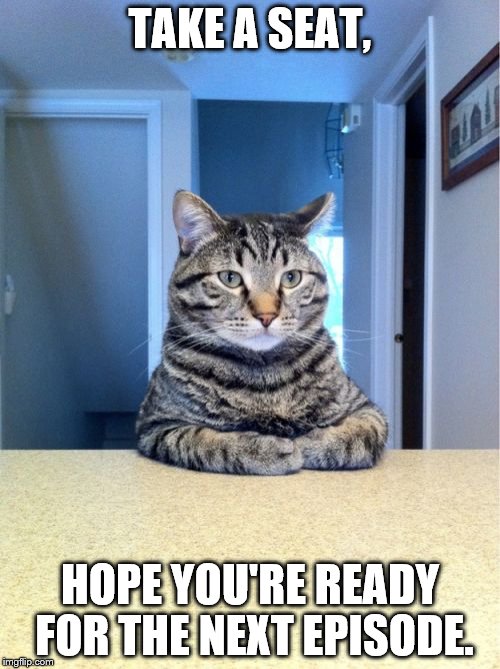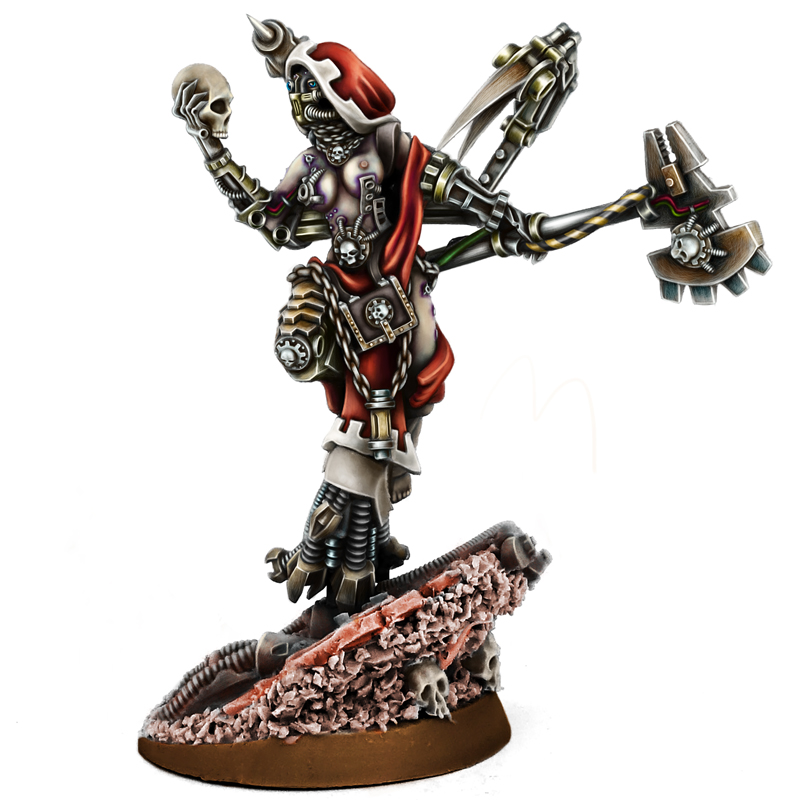Here we are! The end of the RPG and Writing saga.
It's been a nice run, and I hope I gave you both good ideas for your writing, an incentive to try this amazing hobby, and a way to find other very awesome people. Most of the friends I made roleplaying in various ways stuck with me for a long time, and I'm proud to call them so.
Today's post will be a tad shorter, too. Do keep in mind, though, that the same little word of advice about meeting other people applies here too: all of these resources usually will require an interaction of sort with other people, and this time we're talking voice interaction at the very least.
So keep that in mind, yes?
Prepare your bodies, because we're starting!
 |
| 'cus it's gonan blow yo mind~ |
Online resources - The tools of the trade
So, remember how we used the term Tabletop way too much in the last posts? Here's a secret.
You don't necessarily need a table for it. Or a group to be physically in your house or somewhere else, either!
Thanks to the powers of science and technology, the applied sacred oils and praise to the Machine Spirit while chanting the Sacred Hymn of the Planetary connection-*coff*
Sorry, sorry. My 40k is showing. It's getting a tad shameless at this time of the month.
 |
| Look at dem servoarms showing. So lewd. (For those who ask, yes, there's 40k tabletop roleplaying too.) |
But yeah, with the power of the internet, in this day and age you can engage in all sorts of roleplaying from the comfort of your own home.
To do so properly, though, you'll need a couple of things:
- A Voice over Internet Provider service: My favourite at the moment is Discord - light, easy to use and secure. Skype is another good option as well, especially with the latest updates making it a bit more streamlined and usable.
- An account on Roll20, or a similar service: Roll20 is basically a virtual tabletop. It's a framework that can accomodate most kinds of roleplaying systems. There are other instruments that you can find that provide the same sort of service. Google is your friend.
- Friends. Here's a little inspiration on how to acquire some.
Interacting and improvising around other people
This can be one of the biggest hurdles to surpass when you start in this hobby. You'll have to talk with other people, and you'll have to interpret a character, with its reactions, its backstory, talking back and forth in real time with other people doing the same!
It can be scary.
Luckily, you have a couple of games that, after you acquired a sufficient number of friends, can help you doing that without going through the whole, in-depth experience.
I find that one of the best sort of games to do so are social deduction tabletop games - some of them you can even find versions online to play. These games are a ton of fun, usually very easy to learn, and will help you gain confidence in doing and saying stupid stuff with your newly acquired friends.
Some examples are:
- Secret Hitler (Here's an easily accessible online version): A social deduction game with pretty easy rules and that can get very tense, it's an amazing tool to learn how to play a 'character' - of the players, a small group of them will have a secret agenda and will need to work against the group to fulfill it, while the others will need to stop them in time. Try it. It can create some gorgeous and hilarious moments.
- Tabletop Simulator: found on Steam, if you guys have a decent enough pc, this game will be invaluable. Another tabletop simulator, but usually for more traditional games, it hosts a miriad of various games you and your friends can find and play - and yes, social deduction games too, like Snake Oil, where, given a certain item, each player will have to sell it to the judge (appointed every turn) as the BEST THING EVER.
Let's get some dices rolling, shall we?
Right. It's time for the big one. The real stuff. You've read the whole miniseries, you've tried to roleplay by chat around, you've tried calling your friends and get more comfortable around them while playing games...the time is right to get your character sheets, login on roll20, and get started as a GM or as a Player.
The first thing you'll need to do is the manual for your system. Of course, as we discussed before, usually you'll have to buy these manuals, because no one here supports piracy, do we?
- DrivethruRPG is one of the most extensive online stores to get all of your roleplaying fix. Reviews, an easy-to-use online store, an online library where you won't lose anything as long as you remember your password. A great way to get your manuals.
- If you still don't feel like laying down money to play, which is totally understandable, you have some RPG's that are completely FREE! I know, right? Here's a selection: of particular note are Dungeons and Dragons 5e, so famous I don't think it requires explanation, and ECLIPSE PHASE, a stunningly well done transhumanist roleplaying game with underlying themes of cosmic horror.
Once that is done, it's just a matter of starting and creating your stories! Remember, you can always propose a new system, you can always rework things, you can always back down. After all, it's all PEOPLE we're talking about, and if your friends are good friends, they'll understand.
But I want to invite people in my house!
You do? I know, it's a good feeling, I had to stop because I don't want them to find the bodies in my closet - I'm too embarrassed of the mess.
If you wanna connect in the real world with people who enjoy the same hobby, one of the best ways to do that is finding a shop for the hobby in your area - Comic book stores, book stores and tabletop gaming stores usually tend to have both the resources you need to get started (dice sets, manuals, etc).
A friendly chat with the workers there is usually a good way to know who's playing what and if they have available spots - sometimes you'll even find little ads around that will ask for players or game masters for specific systems.
Going online and searching for groups in your areas is another good way as well. As always, I'd advise first a public encounter and getting to know them instead of jumping headfirst. It's not just a matter of safety - you might not like their style, or they might not like yours. It's all a matter of being curteous and recognizing a situation you might not have fun with.
If you want to get to know more about the hobby, there's plenty of resources online to expand your knowledge. On youtube you'll find a lot of channels dedicated to tabletop RPG's - between recorded sessions from start to finish, stories and guides, you'll be hard pressed not to find what you're looking for.
A very nice serie I found some years ago, and that is still funny and reliable to this day is Noah Antwiler's 'Counter Monkey' series: lots of amazing little snippets and stories, advices and experiences from his days as a roleplayer that are fun to watch and listen to.
And with that, our little miniseries is done! Stay tuned tomorrow for my very short short set in the #Tiogair universe, 'Tryouts', depicting a little snippet of life at the Heart's Delight.
Go forth, my dungeon delvers, mercenaries, scoundrels and paladins - try this hobby for yourself, and if you like it create gorgeous and fun stories. And if you're already familiar, share your best stories down here in the comments! Show everyone how amazing this can be!
Toodles!






